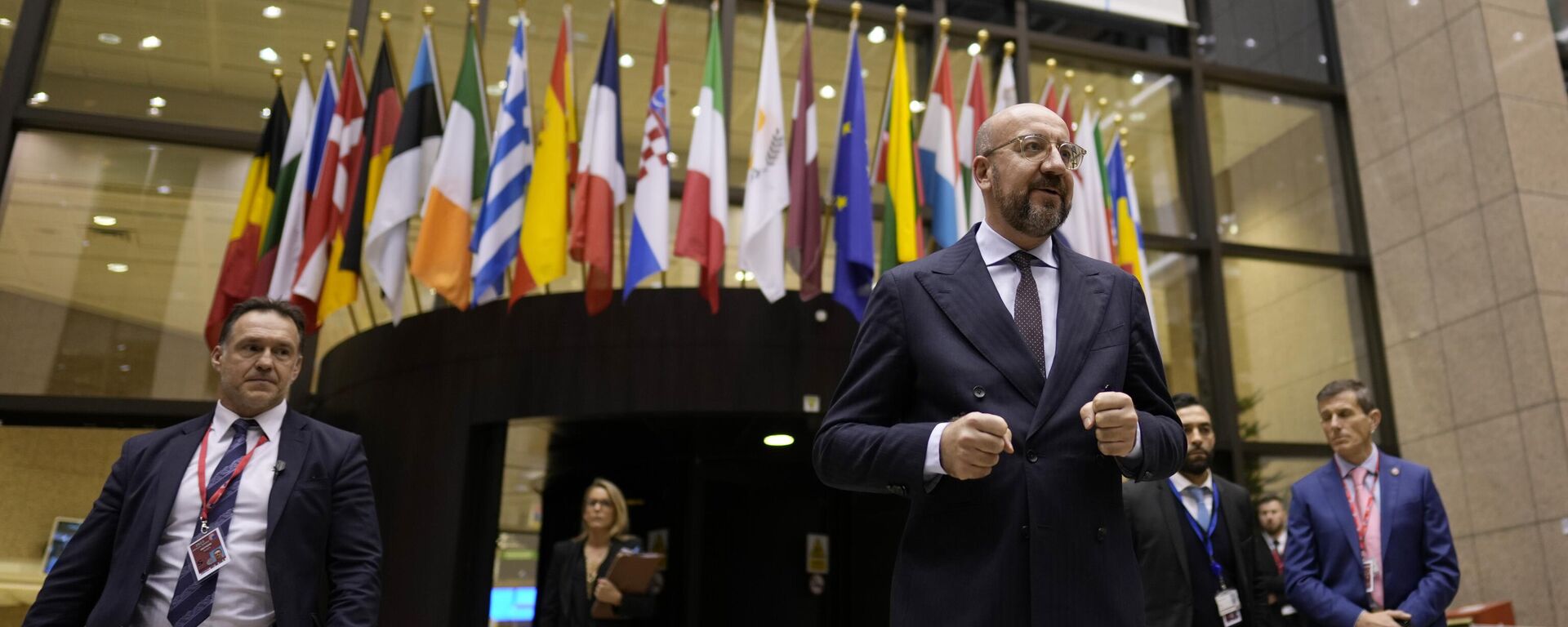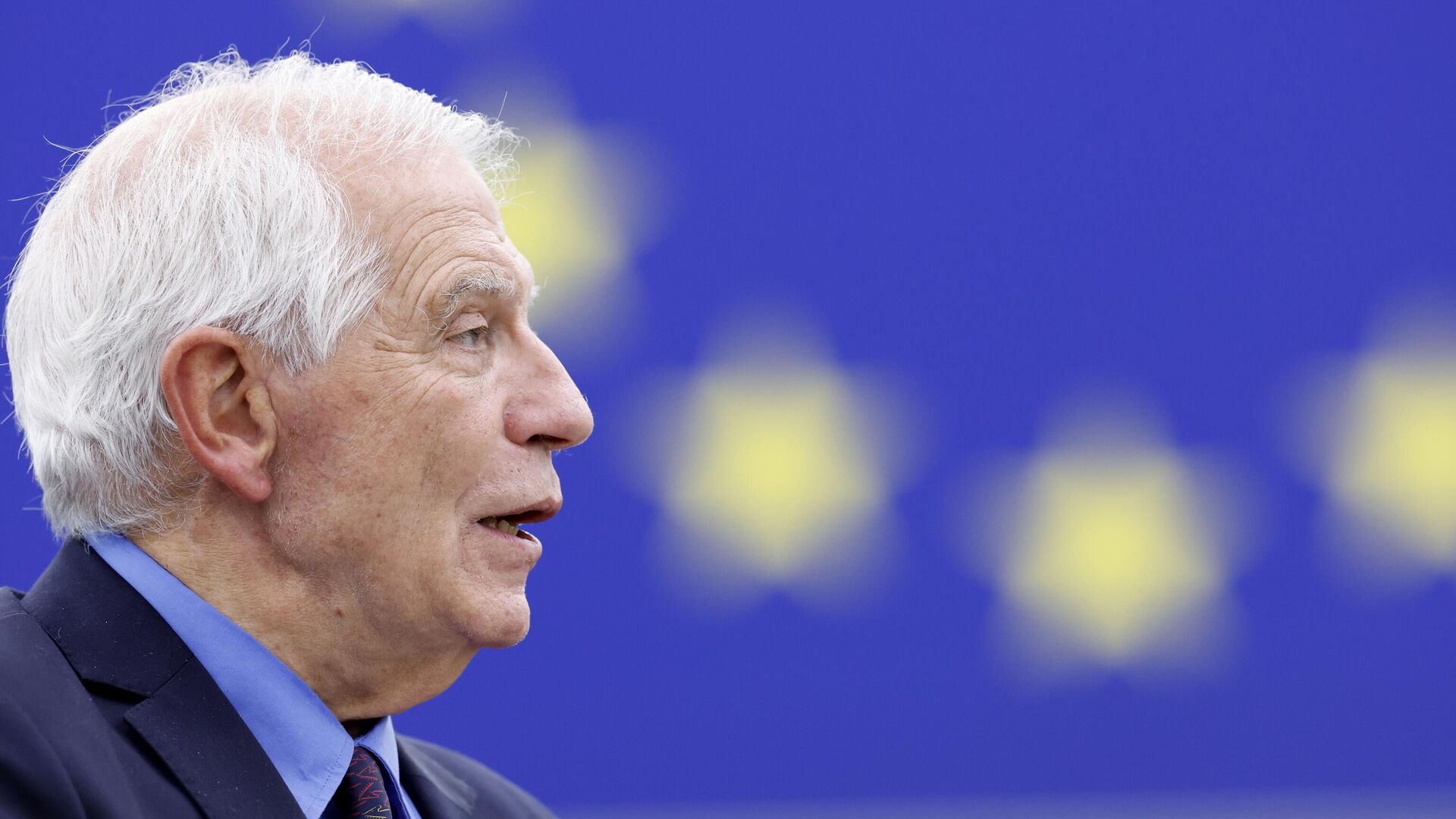https://sputnikglobe.com/20240129/eu-uses-lure-of-infrastructure-investments-to-entice-central-asian-states-to-turn-on-russia-1116469270.html
EU Uses Lure of Infrastructure Investments to Entice Central Asian States to Turn on Russia
EU Uses Lure of Infrastructure Investments to Entice Central Asian States to Turn on Russia
Sputnik International
EU foreign policy chief Josep Borrell has admitted that the EU efforts to invest in the transport infrastructure of the Central Asian states are aimed at enforcing anti-Russian sanctions.
2024-01-29T15:38+0000
2024-01-29T15:38+0000
2024-01-29T15:38+0000
world
european union (eu)
central asia
russia
josep borrell
sanctions
infrastructure
https://cdn1.img.sputnikglobe.com/img/07e6/0c/09/1105263145_0:160:3073:1888_1920x0_80_0_0_0e62fb2f6c3145f1157c9a27352610e3.jpg
EU foreign policy chief Josep Borrell has admitted that the EU efforts to invest in the transport infrastructure of the Central Asian states are aimed at enforcing anti-Russian sanctions.In his speech at the Investors Forum for EU-Central Asia Transport Connectivity, Borrell noted that the European Union needs “full cooperation” from its partners in order for the sanctions imposed on Russia to be effective.“Yes, we have to build infrastructures. Yes, we have to increase the connectivity of our space,” he added. “But all that is at the service of a political purpose, which is [to] increase our partnership and to share a better future by increasing economic ties and also defending the same values.”Meanwhile, the European Commission Executive Vice President Valdis Dombrovskis has announced the intent of European and international institutions who attended the forum to commit some €10 billion “in support and investments towards sustainable transport connectivity in Central Asia,” according to a statement shared via the EC website.
https://sputnikglobe.com/20240129/eu-may-sabotage-hungarian-economy-if-budapest-not-lift-its-veto-on-aid-to-ukraine---reports-1116458023.html
central asia
russia
Sputnik International
feedback@sputniknews.com
+74956456601
MIA „Rossiya Segodnya“
2024
Sputnik International
feedback@sputniknews.com
+74956456601
MIA „Rossiya Segodnya“
News
en_EN
Sputnik International
feedback@sputniknews.com
+74956456601
MIA „Rossiya Segodnya“
Sputnik International
feedback@sputniknews.com
+74956456601
MIA „Rossiya Segodnya“
eu central asia relations, eu anti russian sanctions
eu central asia relations, eu anti russian sanctions
EU Uses Lure of Infrastructure Investments to Entice Central Asian States to Turn on Russia
The European Union’s offer to help improve infrastructure in Central Asia ultimately serves a “political purpose,” EU’s High Representative for Foreign Affairs and Security Policy Josep Borrell declared.
EU foreign policy chief
Josep Borrell has admitted that the EU efforts to invest in the transport infrastructure of the Central Asian states are aimed at enforcing anti-Russian sanctions.
In his speech at the Investors Forum for EU-Central Asia Transport Connectivity, Borrell noted that the European Union needs “full cooperation” from its partners in order for the
sanctions imposed on Russia to be effective.
“We are following closely the trade between us, between Central Asia countries, with them and Russia. We try to analyze which are the mechanisms that make sanctions being circumvented. We have to increase our cooperation on that,” he stated.
“Yes, we have to build infrastructures. Yes, we have to increase the connectivity of our space,” he added. “But all that is at the service of a political purpose, which is [to] increase our partnership and to share a better future by increasing economic ties and also defending the same values.”

29 January 2024, 03:17 GMT
Meanwhile, the European Commission Executive Vice President Valdis Dombrovskis has announced the intent of European and international institutions who attended the forum to commit some €10 billion “in support and investments towards sustainable transport connectivity in Central Asia,” according to a statement shared via the EC website.



